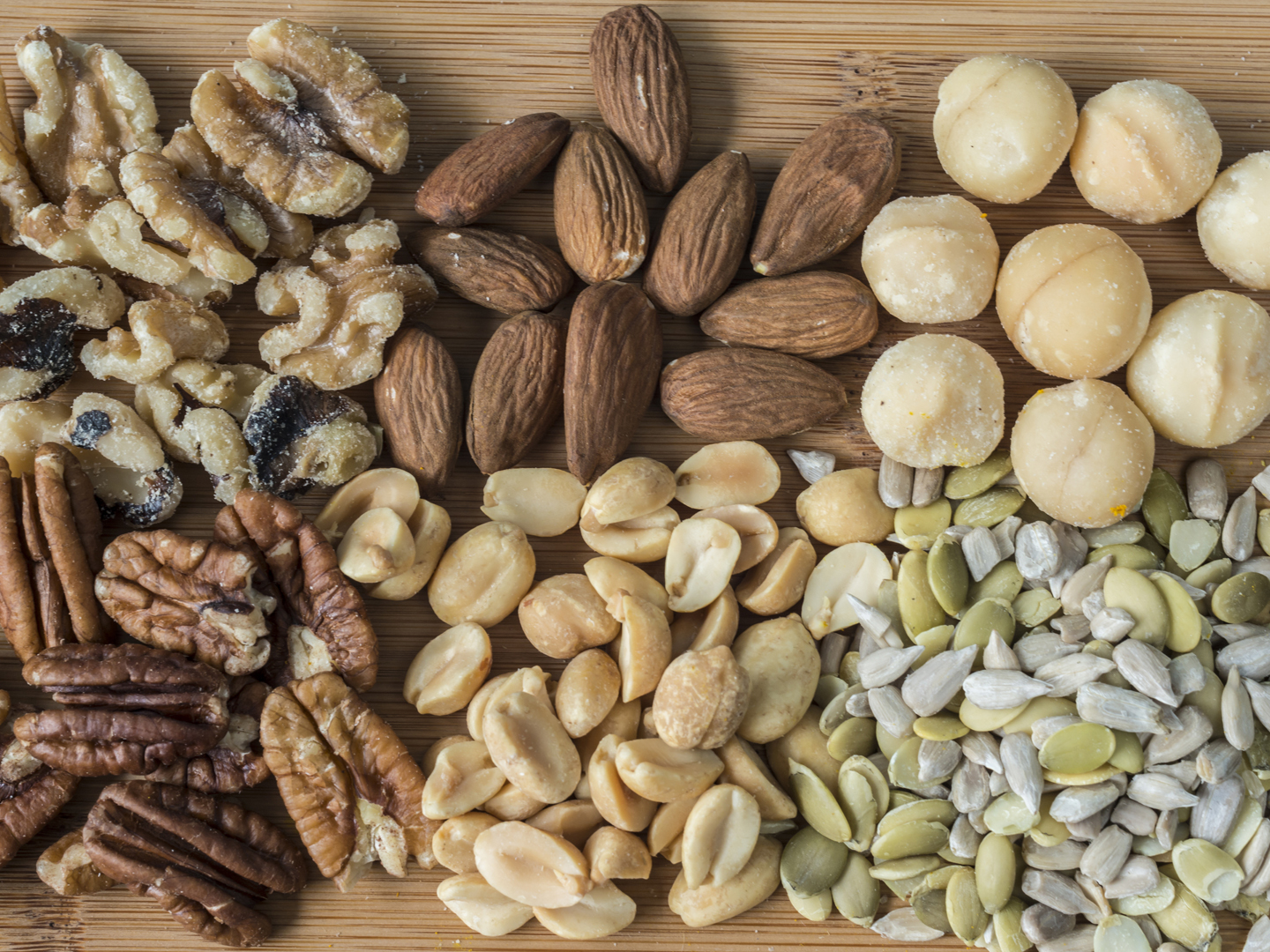Are Nuts a Healthy Nibble?
My husband loves nuts. What are some healthy choices for him?
Andrew Weil, M.D. | May 31, 2004

I’m with your husband. I love nuts, too, and I’m happy to assure you that most of them are good for you. Nuts are high in calories, mostly from fat, but usually that fat is the monounsaturated kind that is good for us. In fact, eaten in moderation, nuts can lower your risk of heart disease and heart attack. If you buy packaged walnuts, you’ll soon see a new label claim stating that eating 1.5 ounces daily, as part of a low saturated fat and low-cholesterol diet, and not resulting in increased caloric intake, may reduce the risk of coronary heart disease. (The U.S. Food and Drug Administration announced on March 31, 2004, that it would permit use of this qualified health claim for walnuts.)
There’s powerful evidence behind the FDA move. A few years ago, the ongoing Nurses Health Study at Brigham and Women’s Hospital in Boston and the Harvard School of Public Health, which is monitoring the health of 86,000 nurses, found that those who ate more than five ounces of nuts per week (about the total you would get by eating a single airline packet daily) had one-third fewer heart attacks than those who rarely or never ate nuts.
Walnuts are an especially good choice because they provide vital omega-3 fatty acids in addition to the vitamin E, trace minerals, and fiber that other nuts contain. (By the way, peanuts are legumes, not nuts, and have a less desirable fatty-acid profile.)
In general, I prefer raw, unsalted nuts, and my personal favorites are raw cashews, although I also like roasted, unsalted almonds. (Some people find roasted nuts easier to digest than raw ones.) I also like Brazil nuts, which I eat occasionally for the selenium they contain, and pistachios. One ounce of pistachios contains more fiber than a half-cup of spinach and the same amount as an orange or apple. These nuts also are good sources of vitamin B-6, thiamin, copper, phosphorus, and magnesium.
Unsaturated nut oils oxidize quickly on exposure to heat, light and air, creating rancidity that makes them smell and taste bad (like oil paint). Rancid oils are also carcinogenic. Roasted, chopped, and ground nuts go rancid much more quickly than whole raw ones. Always smell nuts before you eat them or add them to recipes to be sure they are fresh. I store nuts in the refrigerator until I need them. You can toast nuts yourself by stirring them about in a dry skillet over medium-high heat or spreading them on a baking sheet placed in a 350-degree oven; toss them occasionally until they are done to your liking, and try to use them up quickly.
Despite their beneficial nutritional profile, it is important to remember that because nuts are relatively high in calories, they’re to be enjoyed in moderation. I usually eat a handful per day.
Andrew Weil, M.D.











